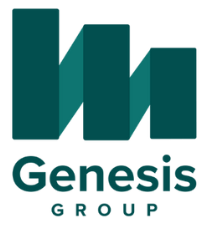Reading Time: 15 minutes
Embarking on Your Home Buying Journey:

Welcome to the thrilling world of homeownership! As a first-time home buyer in Canada, you’re about to embark on one of the most significant journeys of your life. It’s a path filled with hopes, dreams, and understandably, a few complexities, especially when it comes to navigating the mortgage process.
Buying your first home is more than just picking out a house. It involves understanding mortgages, managing finances, and making informed decisions that will shape your future. For many, the mortgage process can seem daunting – filled with financial jargon, extensive paperwork, and crucial decisions.
Why a Checklist is Essential
That’s where our comprehensive checklist comes into play. We understand that the process of obtaining a mortgage, especially for the first time, can be overwhelming. This guide is meticulously designed to break down the process into manageable steps, ensuring you feel confident, prepared, and informed at every stage of your journey.
From assessing your financial health to understanding mortgage basics, finding the right property, and finally stepping into your dream home, our checklist is your personal roadmap. It aims to demystify the mortgage process and transform it into a smooth, understandable, and even enjoyable journey.
With this guide, you’ll gain insights into each phase of the mortgage process, understand the importance of each step, and learn how to navigate the potential pitfalls. Whether it’s getting pre-approved, choosing the right mortgage broker, or understanding the closing costs, we’ve got you covered.

Stay tuned as we delve deeper into the world of mortgages, providing you with the tools and knowledge you need to confidently take this significant step towards homeownership.
Understanding Mortgage Basics

Navigating the world of mortgages can feel like learning a new language, especially for first-time homebuyers in Canada. Understanding the basics is crucial in making informed decisions about your future home. Let’s demystify some of these key concepts.
Mortgage 101: Key Terms Explained
Interest Rates: This is the cost of borrowing money, typically expressed as a percentage of the loan amount. It’s essential to note that even a small difference in the interest rate can significantly impact the total amount you’ll pay over the life of your mortgage.
Amortization: This term refers to the length of time it takes to pay off your mortgage in full, based on a set schedule of regular payments. In Canada, amortization periods usually range from 15 to 30 years. Longer amortization reduces your monthly payments but increases the total interest paid.
Principal: This is the actual amount of money you borrow from a lender. Each mortgage payment you make consists of a portion that goes towards reducing this principal amount and another portion that covers the interest.
Types of Mortgages: Fixed-Rate vs. Variable-Rate
When you start exploring mortgage options, you’ll typically come across two main types: fixed-rate and variable-rate mortgages.
Fixed-Rate Mortgages: These offer a consistent interest rate and payment amount throughout the term of the mortgage. They provide stability and predictability in your payments, making them a popular choice for many first-time buyers.
Variable-Rate Mortgages: With this type, the interest rate can fluctuate based on market conditions. While they often start with lower rates than fixed-rate mortgages, there’s a potential for these rates (and your monthly payments) to increase over time.
Choosing between a fixed-rate and a variable-rate mortgage depends on your financial situation, risk tolerance, and the current economic environment. It’s vital to weigh the pros and cons of each option carefully.

Understanding these mortgage basics is the first step in your home-buying journey. As you proceed, remember that each term and choice can significantly impact your financial future.
Assessing Your Financial Health

Before diving into the Canadian housing market, it’s crucial for first-time home buyers to take a close look at their financial health. Two fundamental aspects of this assessment are your credit score and budget planning.
Understanding the Importance of Credit Score
Your credit score plays a pivotal role in determining your mortgage options. This numerical rating reflects your creditworthiness based on past borrowing and repayment habits. In Canada, credit scores range from 300 to 900, with higher scores indicating better credit health.
Lenders use this score to assess:
- Risk Level: A higher credit score suggests a lower risk to lenders, often leading to more favorable mortgage terms, including lower interest rates.
- Loan Eligibility: Certain mortgage products have minimum credit score requirements. A good score can broaden your mortgage options.
To check your credit score, you can request a free report from Canadian credit bureaus like Equifax or TransUnion. If your score isn’t where you want it to be, focus on timely bill payments, reducing outstanding debts, and avoiding new credit applications shortly before mortgage shopping.
Effective Budget Planning for a Mortgage
Planning your budget is another critical step in the home buying process. Consider the following tips:
- Assess Your Income and Expenses: Get a clear picture of your monthly income and expenses. This will help you understand how much you can comfortably allocate towards mortgage payments.
- Account for Additional Homeownership Costs: Beyond the mortgage payment, include property taxes, home insurance, maintenance costs, and potential homeowners’ association (HOA) fees in your budget.
- Emergency Fund: Ensure you have savings set aside for unexpected expenses or financial changes, like interest rate increases for variable-rate mortgages.
Creating a comprehensive budget gives you a realistic view of what you can afford. It prevents overextending financially and helps maintain a comfortable lifestyle while paying off your mortgage.

By thoroughly assessing your financial health, you equip yourself with the knowledge needed to make smart mortgage choices. A strong credit score and a well-planned budget are your best tools in securing a mortgage that aligns with your financial goals and homebuying aspirations.
The Pre-Approval Process

Embarking on the home buying journey in Canada, one of the most advantageous steps you can take is getting pre-approved for a mortgage. This process not only streamlines your home search but also positions you as a serious buyer in the eyes of sellers.
Why Pre-Approval is Crucial
- Understanding Your Budget: Pre-approval provides clarity on how much you can afford, helping you target homes within your financial reach.
- Locking in Interest Rates: Some lenders offer the option to lock in interest rates for a certain period, protecting you from potential rate increases while you shop for a home.
- Increased Seller Confidence: A pre-approval letter signals to sellers that you’re a committed and capable buyer, which can be particularly influential in competitive markets.
Documents Needed for Pre-Approval
To get pre-approved, you’ll need to provide several documents to your lender. These documents help lenders assess your financial health and determine the mortgage amount and terms they can offer. Be prepared to present:
- Proof of Income: Recent pay stubs, tax returns, and employment verification.
- Credit Information: Permission for the lender to perform a credit check.
- Proof of Assets: Bank statements showing savings, investments, and other assets.
- Debt Information: Details of current debts, including car loans, student loans, and credit card balances.
- Personal Identification: Government-issued identification to confirm your identity.
Gathering these documents beforehand can expedite the pre-approval process and ensure you’re ready to act quickly when you find the right property.

Remember, pre-approval doesn’t guarantee final loan approval, as this will depend on the property you choose and a more detailed financial vetting. However, it’s a powerful first step that sets you on a confident path in your home-buying journey.
Finding the Right Mortgage Broker

Navigating the Canadian housing market as a first-time home buyer can be overwhelming. A key ally in this journey is a knowledgeable mortgage broker. Understanding the role of a mortgage broker and choosing the right one can make a significant difference in your home buying experience.
The Role of a Mortgage Broker
A mortgage broker acts as an intermediary between you and potential lenders. The primary role of a broker includes:
- Assessing Your Financial Situation: They evaluate your financial health to understand what mortgage products suit your needs.
- Wide Access to Mortgage Products: Brokers have access to a variety of lenders and mortgage products, which might not be directly available to you.
- Negotiating on Your Behalf: They negotiate with lenders to secure competitive interest rates and favorable mortgage terms.
- Guiding Through the Process: From application to closing, brokers provide valuable guidance, simplifying complex processes and paperwork.
Choosing the Right Mortgage Broker
Selecting a broker who aligns with your needs is crucial. Consider the following when choosing a mortgage broker:
- Reputation and Reviews: Look for brokers with positive testimonials and reviews. Personal recommendations from friends or family can also be invaluable.
- Experience and Expertise: Choose a broker with a proven track record, especially with first-time buyers or properties in your area of interest.
- Communication and Transparency: A good broker should communicate clearly and be transparent about all aspects of the mortgage process, including their fees.
- Personal Rapport: It’s important to work with someone you trust and feel comfortable with, as this is a significant financial decision.

A mortgage broker can be a vital resource, offering personalized service and expertise. They can turn the often daunting task of finding the right mortgage into a more manageable and informed process. By choosing a broker who understands your unique needs and has the expertise to navigate the Canadian mortgage landscape, you set yourself up for a more successful and less stressful home buying journey.
Shopping for Your Home

Embarking on the house hunting journey in Canada can be both exciting and daunting for first-time home buyers. Finding a home that aligns with both your needs and your budget requires a strategic approach. Here are some valuable tips to help you navigate the process.
House Hunting Tips
- Create a ‘Must-Haves’ List: Identify what’s essential for you in a home – number of bedrooms, proximity to work, neighborhood amenities, etc. This will help streamline your search.
- Online Research: Utilize online real estate platforms to view listings and get a sense of pricing in your desired areas. Websites like Realtor.ca or local real estate agency sites offer comprehensive listings.
- Attend Open Houses and Viewings: This gives you a firsthand look at various properties and a feel for different neighborhoods.
- Stay Within Your Budget: Remember your pre-approval amount and ensure you’re looking at homes within your budget range to avoid financial strain.
Considerations Beyond Price
When shopping for a home, it’s crucial to look beyond just the price tag:
- Location: Consider the quality of the neighborhood, local schools, access to public transport, and proximity to work or essential amenities.
- Property Taxes: Research the property tax rates in your potential new area, as this will be an ongoing cost.
- Future Value: Think about the potential long-term value of the property. Is the area growing? Are there planned developments that could affect property values?
- Home Inspection: A professional home inspection can identify any underlying issues with the property, which can impact your decision to buy or the price you’re willing to pay.

By carefully considering these aspects, you can make a more informed decision when selecting your future home. It’s not just about finding a house; it’s about discovering a place where you can build your life and potentially grow your investment in the Canadian real estate market.
Making an Offer and Negotiating

Once you’ve found your dream home in Canada, the next crucial step is making an offer and entering negotiations. This phase requires tact, strategy, and an understanding of the real estate market dynamics. Let’s delve into how you can navigate this process effectively.
Steps to Make an Offer
- Consult Your Real Estate Agent: They will have insight into the local market and can advise you on a reasonable offer based on comparable sales.
- Drafting the Offer: This legally binding document should include the purchase price, deposit amount, closing date, and any contingencies (like a home inspection or financing).
- Review Legal Implications: Ensure you understand the terms of the offer and any legal obligations.
- Submit Your Offer: Your agent will present it to the seller’s agent or directly to the seller.
Negotiation Tactics
Negotiations can be a high-stakes part of the home buying process, but with the right approach, you can navigate it successfully:
- Be Prepared to Compromise: Have a clear idea of what you’re willing to concede and what is non-negotiable.
- Understand the Seller’s Motivation: Knowing why the seller is moving can give you leverage in negotiations.
- Stay Within Budget: It’s easy to get caught up in the heat of negotiations. Remember your financial limits and stick to them.
- Consider Timing: Sometimes the speed of the transaction can be as appealing as the offer price, especially if the seller is looking to close quickly.

Making an offer and negotiating the purchase price and terms are delicate parts of the home buying process. Approach these steps with a clear strategy, informed insight, and professional guidance to increase your chances of successfully purchasing your Canadian dream home.
Finalizing the Mortgage

After successfully negotiating the purchase of your home, the next critical step for first-time homebuyers in Canada is finalizing the mortgage. This part of the process transforms your dream into a reality and involves a few key stages that require attention and understanding.
Mortgage Application Steps
- Completing the Application: Fill out the mortgage application with your lender or mortgage broker. This typically includes providing detailed financial information and proof of income, assets, and employment.
- Documentation: Be prepared to submit necessary documents such as identification, proof of income (pay stubs or tax returns), and bank statements.
- Final Approval: After reviewing your application and documents, the lender will issue a final approval. This will include the terms of the mortgage, such as the interest rate, repayment period, and any other conditions.
- Sign the Agreement: Review the mortgage agreement carefully, ensuring you understand and agree to all terms before signing.
Understanding Closing Costs
Closing costs are additional expenses that come with finalizing your mortgage and purchasing your home. It’s important to budget for these:
- Legal Fees: Payments made to a lawyer or notary for their services in closing the sale.
- Land Transfer Tax: Tax paid on the transfer of property (varies by province).
- Home Inspection and Appraisal Fees: Costs for professional services to assess the condition and value of the property.
- Title Insurance: Insurance that protects against issues with property ownership or title.
- Miscellaneous Costs: These can include interest adjustments, property tax adjustments, and other administrative fees.

Finalizing your mortgage is a significant step in the home buying process. Being well-informed and prepared for each stage, from application to understanding and budgeting for closing costs, can ensure a smooth and successful transition into homeownership in Canada.
Preparing for Closing Day

Closing day is a pivotal moment for first-time homebuyers in Canada – it’s when you officially become a homeowner. While it’s a day filled with excitement, it’s also one that requires careful preparation. Let’s walk through what you need to do and what to expect as you approach this significant milestone.
Final Steps Before Closing
- Final Walkthrough: Arrange for a final inspection of the property. This is your last chance to ensure everything is as agreed upon in your purchase agreement.
- Confirm Financial Details: Double-check your mortgage details and closing costs. Ensure you have the necessary funds in the right account.
- Utilities and Services: Set up utilities (electricity, water, internet) in your name to begin on the day of closing.
- Insurance: Secure home insurance effective from the closing date, as it’s often required before you can get the mortgage funds.
- Legal Preparation: Your lawyer will prepare the necessary documents and guide you through what you’ll need to sign.
What to Expect on Closing Day
- Document Signing: You will sign several legal documents, including the mortgage agreement and property deed.
- Funds Transfer: The mortgage funds will be transferred from your lender to your lawyer, who then pays the seller.
- Key Handover: Once everything is signed and funds are transferred, you’ll receive the keys to your new home.
- Official Ownership: You are now officially the homeowner and can move into your new property.

Closing day is the culmination of your home-buying journey. By preparing thoroughly and understanding what to expect, you can ensure a smooth transition to becoming a homeowner. It’s a day of significant achievement, marking the beginning of a new chapter in your life in your new Canadian home.
Stepping Into Your New Home

As we conclude this guide, it’s time to reflect on the significant journey you’ve embarked upon as a first-time homebuyer in Canada. This path, filled with decisions, paperwork, and planning, is leading you to a milestone that many dream of – owning your very own home.
Final Thoughts for First-Time Buyers
Buying your first home is more than a financial transaction; it’s a step towards realizing your dreams and laying down roots. It’s a process that might have seemed overwhelming at the start, but with each step, you’ve moved closer to turning your dream into reality. Remember, every question you asked, every form you filled out, and every decision you made was a part of crafting your future.
Next Steps: Embracing Homeownership Responsibilities
- Ongoing Maintenance: Owning a home means taking care of it. Regular maintenance can prevent costly repairs and keep your home in top condition.
- Financial Management: Continue to budget wisely. Staying on top of mortgage payments, property taxes, and maintenance costs is key to long-term homeownership success.
- Community Involvement: Your new neighborhood is an opportunity for new relationships and community involvement. It’s a chance to contribute to and enjoy your local community.

As you stand at the threshold of your new home, take a moment to appreciate this incredible achievement. The keys in your hand are not just for the front door, but for unlocking a future filled with possibilities and memories.
We at The Genesis Group, an award-winning mortgage brokerage with over a decade of experience, are here to support you in your journey. If you’re navigating the home buying process and need personalized guidance, our team of experts is just a call or click away.
Ready to take the next step in your home buying journey? Contact us at The Genesis Group for expert mortgage advice tailored to your unique needs.
We’d love to hear from you! Share your first-home buying experiences, successes, challenges, or any questions you might have in the comments section below. Your story could inspire and guide others on their path to homeownership.
Glossary
Amortization: The process of spreading out a loan into a series of fixed payments over a period of time.
Credit Score: A numerical expression based on a level analysis of a person’s credit files, representing the creditworthiness of an individual.
Down Payment: An initial payment made when something is bought on credit.
Fixed-Rate Mortgage: A mortgage that has a fixed interest rate for the entire term of the loan.
Mortgage Pre-Approval: A lender’s offer to loan money to a borrower based on certain financial conditions and terms.
Principal: The amount of money borrowed or the amount still owed on a loan, separate from interest.
Variable-Rate Mortgage: A type of home loan in which the interest rate is not fixed but can vary throughout the life of the loan.
Closing Costs: Fees associated with the finalization of a real estate transaction.
Debt-to-Income Ratio: A personal finance measure that compares the amount of debt you have to your overall income.
Equity: The difference between the market value of your home and the amount you owe the lender who holds the mortgage.
FAQs
What is the first step in the home buying process for a first-time buyer?
The first step is typically getting pre-approved for a mortgage. This gives you an idea of how much you can borrow and sets a realistic budget for your home search.
How do I know which type of mortgage is right for me?
This depends on your financial situation and preferences. A fixed-rate mortgage offers stability with a consistent interest rate, while a variable-rate mortgage can offer lower rates but with potential rate changes over time.
What is a good credit score for buying a home?
Credit scores above 650 are generally considered good, but the higher your score, the better your chances of securing a favorable mortgage rate.
How much should I save for a down payment?
Ideally, saving 20% of the home’s purchase price is beneficial to avoid paying private mortgage insurance. However, many loans exist for first-time buyers that allow lower down payments.
Can I buy a home with outstanding student debt?
Yes, you can still buy a home with student debt. Lenders will consider your debt-to-income ratio, so it’s important to manage your student debt effectively.
What are closing costs, and how much should I expect to pay?
Closing costs are fees associated with completing a real estate transaction. These can range from 2% to 5% of the loan amount.
Should I use a mortgage broker?
A mortgage broker can help you navigate the mortgage process, compare rates, and find the best loan for your situation. They are especially helpful for first-time buyers unfamiliar with the process.
What happens on closing day?
On closing day, the final paperwork is signed, closing costs are paid, and the property is officially transferred from the seller to the buyer.
How can I prepare for homeownership responsibilities?
Budget for regular home maintenance and unexpected repairs. Stay informed about property taxes and insurance requirements.
Can government programs help first-time homebuyers?
Yes, various government programs offer benefits like tax incentives, down payment assistance, and more. It’s advisable to research and see which programs you may qualify for.

